“Childhood is not a glorious thing. Childhood does not comfort or instruct. Childhood isolates people. Sometimes, children make mistakes which they regret later in their lives.”
– Scott Bradfield, The History Of Luminous Motion
Fifty years ago this year, an 11-year-old girl named Mary Bell had stood trial at Newcastle Assizes for the murder of two young boys and was now facing the first of many Christmases without her family. In the summer of 1968 two young children had died in the Scotswood area of Newcastle. The first had been assumed to be an accident, but when another body was found three months later the police began to have their suspicions.
Mary Bell lived on Whitehouse Road, having moved there from the notorious Westmoreland Road. It was what might now be termed a “deprived area”, with high unemployment, alcoholism, wife-beating, child-beating and all the usual symptoms of hopelessness that these places are synonymous with.
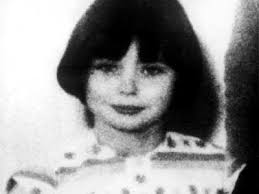
Mary lived with her sex-worker mother, Betty, and petty criminal father, Billy, in a house that was part crypt, part decompression chamber. What little furniture they had was old and wrecked. The curtains were always partly drawn, even in the height of summer. It was a vampire’s lair, inside of which the dead of spirit lurked. Betty had had Mary when she was sixteen years old, and family members would later recall that when Mary was a toddler, Betty had tried to kill her and pass it off as an accident. Her biological father was unknown, but “dad” to Mary was Billy Bell, the man who’d married her mother and who would look after her while Betty travelled north to work the more lucrative streets of Glasgow. Billy Bell would eventually be sent down for armed robbery, but with Mary he was a gentle soul, in sharp contrast to Betty who beat her daughter and prostituted her out to clients.
Norma Bell (of no relation) was two years older than Mary. Her family moved to Whitehouse Road in the Spring of 1967, soon after which Norma befriended the younger girl. Mary had grown up in an environment where crime was simply a given aspect of daily existence, like breathing or pissing. It was what people did. Norma herself was a fighter, pouring her frustrations out through her fists in the playground. The two girls bonded through hate, for what they could barely put into words, but whatever it was they were going to express it somehow.
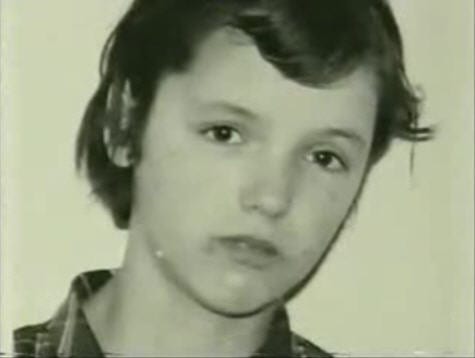
The 25th May 1968 was the last day of Martin Brown’s short life. Martin was four years and two months old. He lived with his family in a two-storey terraced house at 140 St Margarets Road in Scotswood. He lived and played in the same area as the now-11-year-old Mary Bell. He shared the same experiences – of Davy’s shop, the sand-pit at the Woodlands Crescent Nursery, the railway embankment, Hodkin Park and the Tin Lizzie. He lived there, and he died there.
It was a Saturday, and it was tradition for his parents to sleep in on those mornings. Martin had given his baby sister her breakfast of bread and milk, and then dressed her before feeding himself. After wards, he grabbed his anorak and went out to play. “I’m away, Mam,” were the last words his mother ever heard him say. In those days, communities in areas like Scotswood were close-knit, everyone knew everyone else, and the tabloid-invoked spectre of the paedophile had yet to overrule the common sense of the parents who were happy to see their children as young as three or four years old running loose in the streets. But that’s how it was then. Martin spent his day rebounding through the area, scabbing a biscuit off some workmen from the electricity board as they worked on the derelict houses, knocking in and out of folks’ houses. Mid-afternoon, about 3 O’Clock, Martin came home to get some money off his dad, prior to a lollipop raid on Davy’s shop.
A half hour later, Martin was dead.
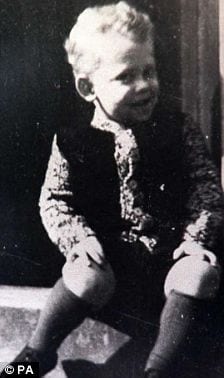
Some lads, chumping for wood in the derelict houses on St Margarets Road found him in the back bedroom at no. 85. The floor was strewn with rubble and some empty pill bottles. In the posture of Jesus deposed from the cross, Martin lay on his back, his arms outstretched, blood on his mouth. There were no other injuries, no signs of a struggle and after the ambulancemen had failed to revive him, it was assumed he had been the victim of an accident.
On 26th May, the day after Martin was found dead, there was a break-in at the local nursery. The vandals left behind scrawled notes that only made sense later. Amongst the angry scrawl was an emphatic warning to the world: “fuck off we murder,” and the puzzling explanation: “I murder so that I may come back.” Police dismissed the incident as a prank.
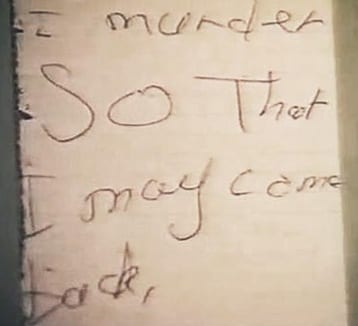
31st July 1968, nine weeks later. The schools had broken up and high summer hung over the city. Brian Howe, three years and four months old, lived on Whitehouse Road, the other major residential street in Scotswood. He shared number 64 with his father and his siblings, together with Lassie the dog. That afternoon he was seen playing in the street, with Lassie in tow, but when tea-time rolled around and he still hadn’t returned home, his family went out looking for him. They asked for him at Davy’s shop, at the Vickers Armstrong car park where kids would knock about, and then back up to the Tin Lizzie and on to Hodkin Park. He was nowhere to be found.
That night the heat of the day lingered and families stayed up late, some helping the police to search for Brian. Just after 11pm, the police found him on the Tin Lizzie, laid under a blanket of grass and weeds. Unlike Martin Brown, it was clear how Brian had died – from the bruises and scratches around his neck. He also had scratches on his face and blood on his mouth. Close to the body lay an old pair of scissors with one blade broken, the other. Later, they would find out what those scissors had been used for.
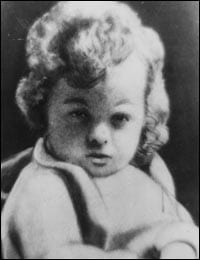
Detective Chief Constable James Dobson was the first to harbour suspicions about Mary Bell, the little girl who lived down the lane. “Let us say I sensed there was something terribly wrong,” he said. Dobson had been involved in the Martin Brown case just a few weeks earlier, and his instincts were stirred when he arrived at the Tin Lizzie early on the morning of 1st August. The murder scene was harshly lit. Police working the site were solemn, respectful. The night air was filled with the clank of trains shunting down the nearby tracks. Initially, they were looking for a nonce, already putting out the feelers for known or suspected kiddy-diddlers in the area.
The pathologist at the scene decided Brian Howe had been strangled, not stabbed, between 3.30 – 4.30pm the previous afternoon. He noted pressure marks around the boy’s neck and across his nose. He had been choked and smothered, carefully, deliberately, tenderly. There were six small stab wounds on his thighs and legs, and a small patch of skin has been cut from his scrotum. Dobson recognised no signs of anger in these injuries. “There was a terrible playfulness about it, a terrible gentleness if you like, and somehow the playfulness of it made it more, rather than less, terrifying.”
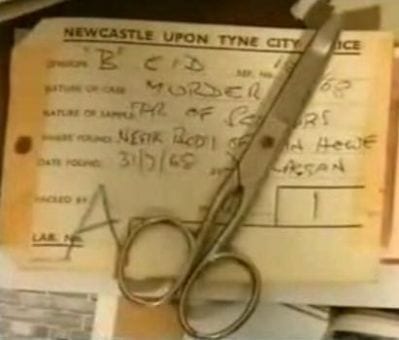
Dobson had seen how Mary Bell had reacted on the morning of Brian Howe’s funeral: “Mary Bell was standing in front of the Howes’ house when the coffin was brought out. I was, of course, watching her. and it was when I saw her there that I knew I did not dare risk another day. She stood there, laughing. Laughing and rubbing her hands. I thought, My God, I’ve got to bring her in, she’ll do another one.”
Norma and Mary Bell were arrested that afternoon. Their statements would go through several desperate revisions on the part of both girls until, on Sunday 4th August, Norma spilled her guts. She told them Mary had taken her down to the Tin Lizzie to show her Brian’s body. She claimed to have tripped over his head. When she was taken back to the scene by police she assumed the position on the ground that Brian had been found in, proving she had seen the body. She even showed them where Mary had hidden the razor-blade that she had used.
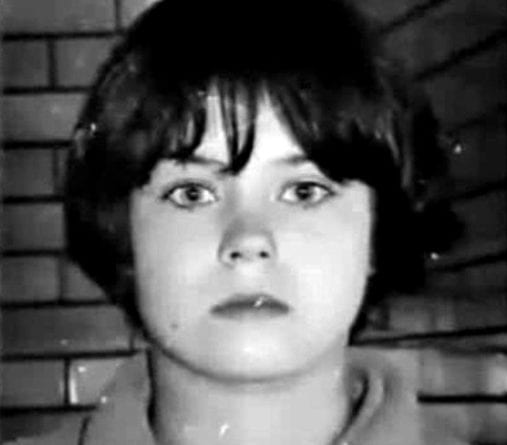
Regina V Mary Flora Bell & Norma Joyce Bell took place at Newcastle Assizes, held in the Moot Hall. The trial lasted 9 days. Both girls were utterly bemused by the proceedings. Wearing cotton dresses, white socks and buffed shoes, they would sometimes laugh at the ridiculousness of it all – the wigs, the strange language, the exaggerated solemnity. The laughter, far from an expression of callous indifference, was a venting of fear. Norma, throughout the trial, quivered with terror. Cheeks perpetually wet with tears, forever looking to her parents for reassurance.
Mary, reliant on her old defence mechanisms in the face of horror, appeared detached. Not bored, but somehow disengaged from the space-time occupied by the barristers and the jury and everyone else present, and yet always seemingly alert to the moment, watching the movement of arms and jowls with her ethereally blue eyes. She disturbed every adult charged with her care during the proceedings, “gave them the willies.” Mary didn’t understand the implication of what might happen to her if she were found guilty, but she did know what would happen to her if she got off, and that prospect filled her with abject terror because she knew that when she got home her mother would beat her to death.
The age of criminal responsibility in England and Wales is ten years old. Between the ages of ten to thirteen, children are considered doli incapax, that is – incapable of criminal intent. Nevertheless, this was a murder trial, but in the end – after all the contradictory statements and the confused recollections – it never was made clear just what had happened that summer but the jury decided to acquit Norma and that Mary was in a state of “diminished responsibility” and charged with two counts of manslaughter.
Before the trial, the girls had been on remand for four months. Norma had been under psychiatric observation in the children’s wing of Prudhoe Monkton Hospital. Mary had been sent to a remand home in Seaham, Co Durham, where she was surrounded by older girls, some as old as 18, who were awed by the enormity of the small girl’s crime, an act so far beyond the own pathetic episodes of rebellion.

Throughout the 1970’s she was housed in a young offender’s institution, the sole girl amongst twenty-two older boys, while her mother sold salacious stories to the tabloids. In 1977 she escaped and went on a three-day runner during which time she finally lost her virginity. In 1979 her name made the paper again when she briefly absconded from Moore Court open prison, though within a year she was out on licence anyway, having served twelve years.
There was no public furor stirred up by the media and Mary Bell, under a new name, was granted anonymity. In 1984 she gave birth to a daughter who only discovered the dark secret of her mother’s past when the tabloids swooped and they had to leave their house with sheets over their heads. Since then, they’ve been forced to move home several times, until the courts finally decreed that Mary Bell’s daughter should also have anonymity for life.
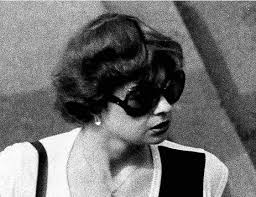
The definitive book on the case – Cries Unheard by Gitta Sereny – was the subject of a brief controversy when the Blair mob tried to bar its publication so as to prevent a murder profiting from their crimes. They failed, the book was published and it’s one I recommend to anyone who wants another perspective on the alternative modern history of the UK.
The story of Mary Bell has inspired several songs over the years, but the one that perhaps comes closest to capturing the essence is Black Box Recorder’s Child Psychology.
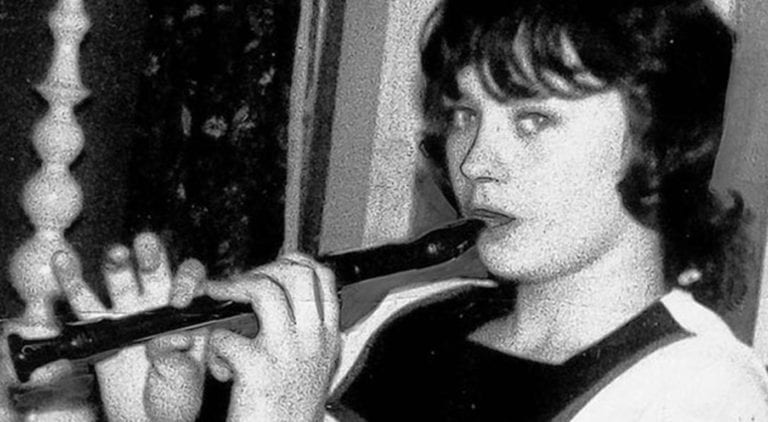



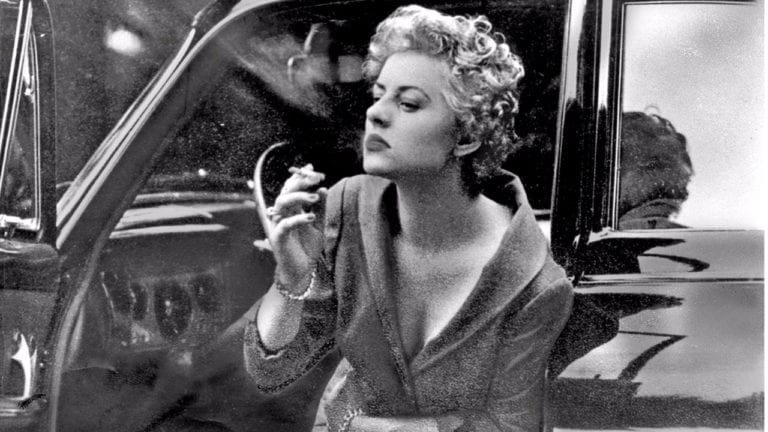
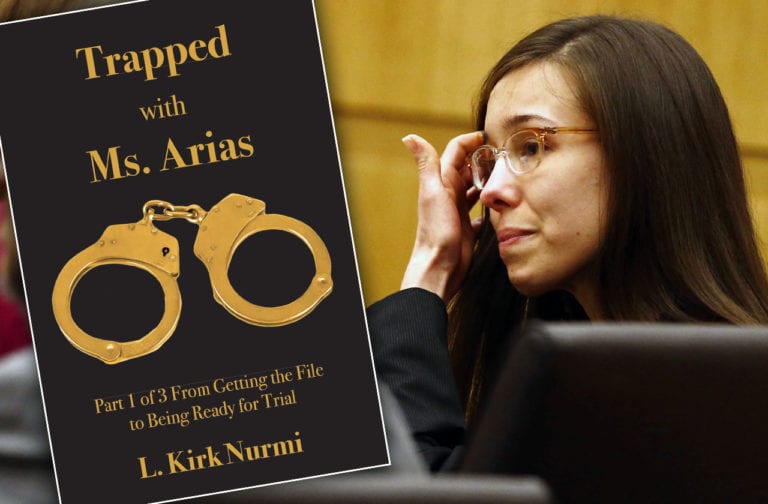
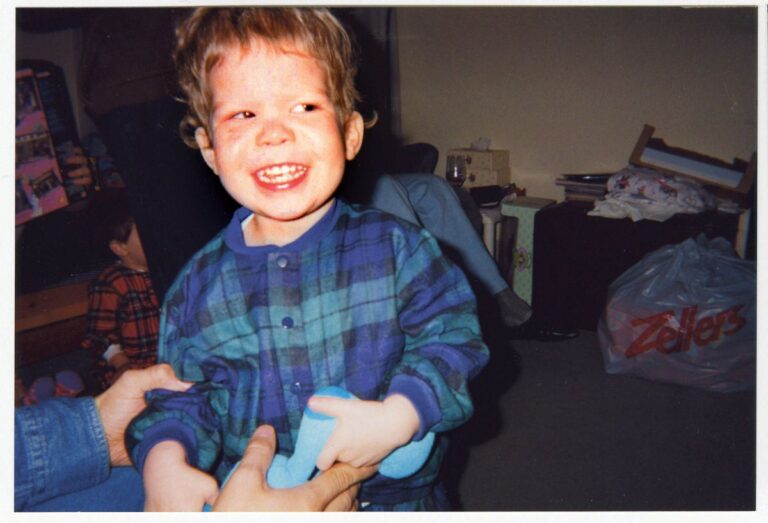
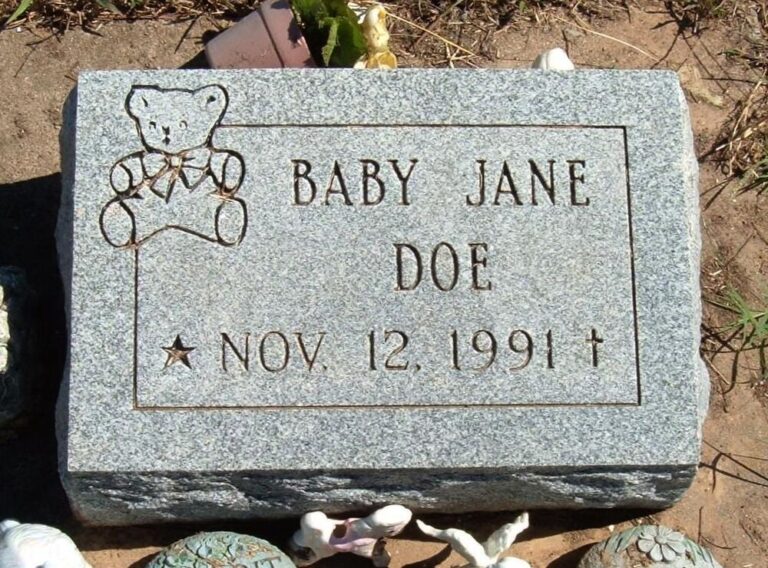
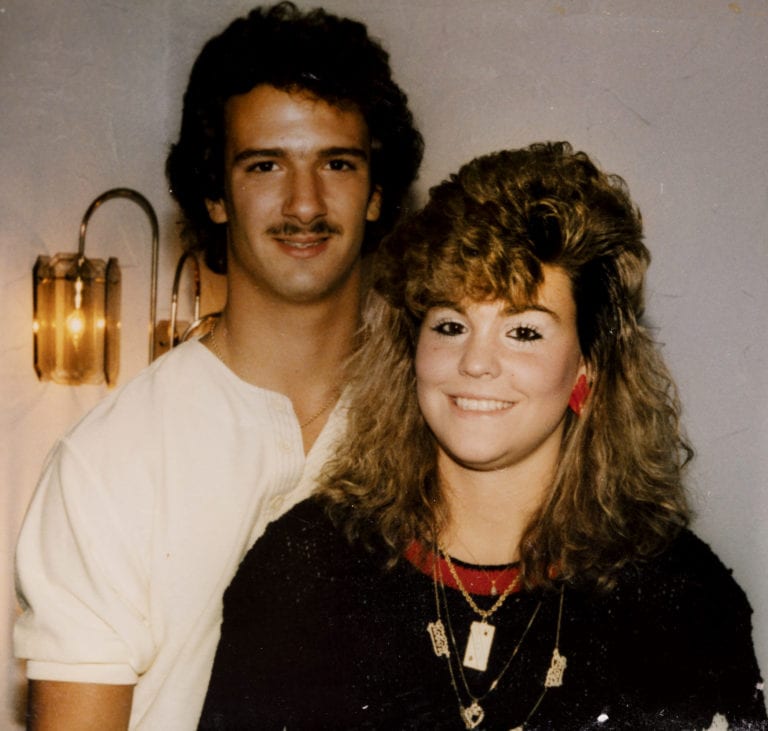
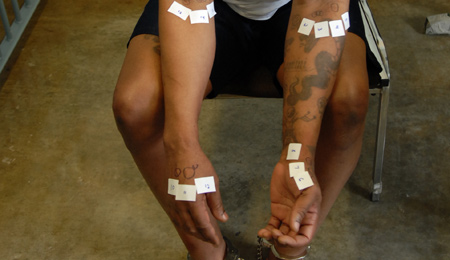
Comments:
With an upbringing like that it is no wonder she probably didnt understand how wrong murder was. For once, I am kind of pleased that a killer was released. Her parents should have been charged.
I agree. Just read the “Cries Unheard” book. Her mother should have been hung for what she did to Mary.
This is the most well-written entry on the site, hands down. Excellent job.
I find some of the language in this article odd; “like breathing or pissing”.
[…] YOUNG BRIAN W/HIS MOTHER EVIDENCE PHOTO OF SCISSORS USED BY MARY […]
This article is old but god it’s so poorly written! I had to stop reading it after a few paragraphs
“in sharp contrast to Betty who beat her daughter and prostituted her out to clients.” vs “In 1977 she escaped and went on a three-day runner during which time she finally lost her virginity.” So which is it? And why is the word “finally” in the second sentence?
beautiful girl